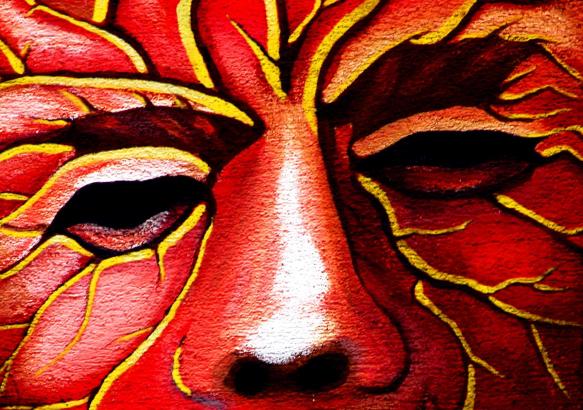A Brief History of Babel
Borders, windows.
Sound.
Trudging up the steps, I am winded after six flights,
my words smothered in the breathing.
The Gate of God proffers no favors.
When the spirit gives me utterance, what shall I say?
Curiously, no direct link exists between Babel and babble.
A collective aphasia could explain the disruption. One’s
inability to mouth the proper word, another’s
fluency impeded by context.
A stairway terminating in clouds.
Syllable by twisted syllable, dispersed.
Separated in symbols.
And then,
writing.
To see the sunrise from behind a tree, you must face
east: higashi, or, a discrete way of seeing
the structure of language unfold.
Two characters, layered. One
thought. Direction.
Connotation. The sun’s
ascent viewed through branches
as through the frame
of a glassless
window.
Complexity in simplicity.
Or the opposite.
I have no desire to touch heaven, but my tongues reach where they will.
Who can know what we say to God, but God?
And the breeze winding through, carrying fragments.
* * *
My poem, “A Brief History of Babel,” was drafted during the August 2015 Tupelo Press 30-30 challenge, and was subsequently published at Bonnie McClellan’s International Poetry Month celebration in February 2017.













